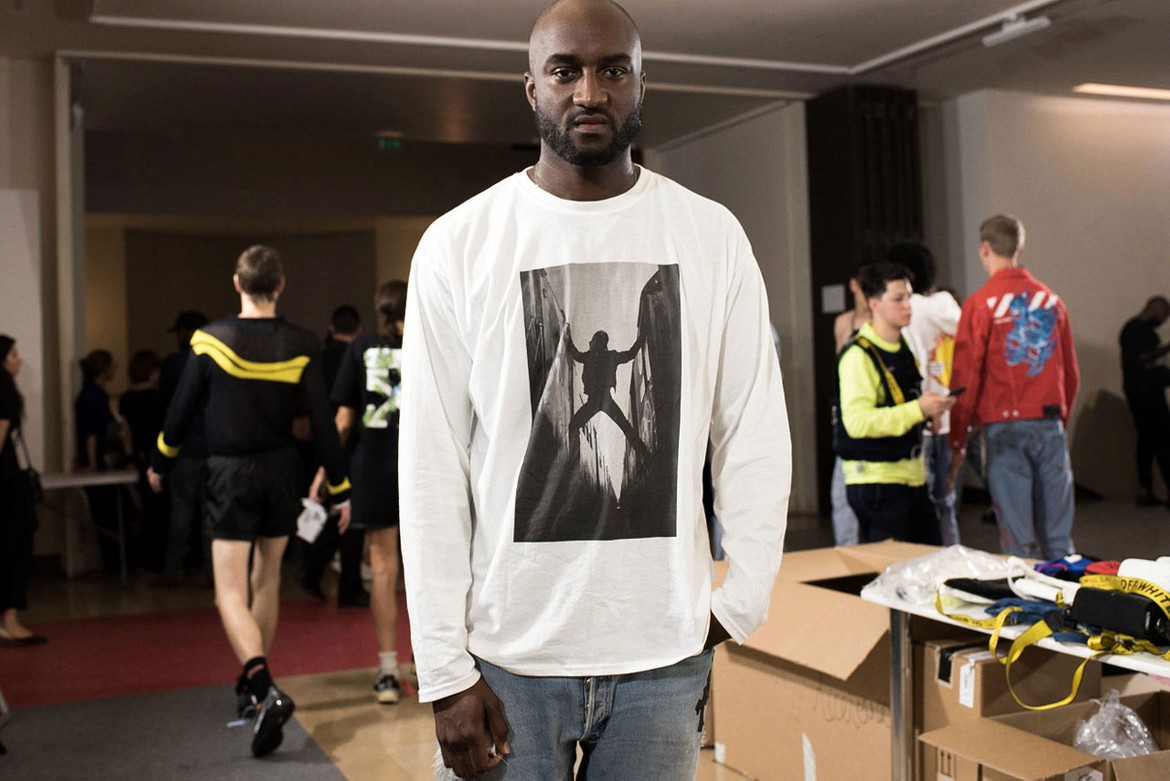From Rihanna and Justin Bieber to Bella Hadid and Kendall Jenner, Abloh’s creations are seen on many Hollwood A-listers. Caoimhe O’Donohue looks into the business model that catapulted Off-White to fame.
In September of this year, Milan-based luxury fashion label Off-White opened its first flagship store in London. Founded in 2012 by American designer Virgil Abloh, Off-White has grown to become one of the leading fashion brands in the luxury industry, blending high fashion with streetwear and creating a cult brand geared towards young people and powered by social media platforms such as Instagram.
Abloh, born and raised in Rockford, Illinois, to Ghanaian parents, made history in 2018 when he was named artistic director of menswear at French luxury fashion house Louis Vuitton, making him the first African American to hold this position.
Amidst an industry often clouded by secrecy, Abloh has proved to be a source of access to those previously shut out, sharing his experiences from behind the scenes via social media and providing invaluable insights. He recently created The Post-Modern Scholarship Fund to support Black students entering the fashion industry, raising $1 million. In July, he auctioned a signed pair of Off-White x Nike sneakers in support of Black Lives Matter, raising $187,000.
Off-White is known for its clear and recognisable branding, high profile collaborations and streetwear-infused high fashion pieces. The label’s designs, which often feature the logo of black and white diagonal stripes, achieve familiarity rather than distinctiveness. The same patterns can be found in streets and urban areas across the globe, creating a powerful force of association for the label.
Off-White’s collaborations with major fashion brands including Nike, Levi’s and Moncler have ensured the brand remains at the forefront of the streetwear industry, whilst collections with lifestyle brands such as Ikea and Evian have helped push the label into new markets. The highly popular Off-White x Nike “The Ten” collection, first released in 2017, saw Abloh rework ten signature Nike sneaker designs. It immediately sold out, with resale prices fetching almost ten times the original prices.
Off-White has experienced significant success since its creation 8 years ago, most notably in 2019 when UK-based retail platform Farfetch acquired the brand’s parent, New Guards Group, for $675 million. It has been a difficult year for the fashion industry amidst the COVID-19 pandemic, with Bloomberg Businessweek predicting a decline in the luxury goods sector by as much as 45%. LVMH, parent company of Louis Vuitton, experienced a 38% drop in revenue last quarter. What the pandemic hasn’t done, though, is stop the expansion of Off-White. Off-White face masks, released as part of the Spring-Summer ’20 collection in March, quickly sold out. New flagship stores in Miami and London were opened this summer. A new trainer collaboration with Nike is also due to be released in October.
The Lyst Index, which ranks fashion brands based on online and in-store sales, google search data and social media engagement, ranked Off-White as second amongst all fashion brands during quarter two of 2020. The label previously held the top position during the first quarter of the year.
Streetwear has steadily become a growing part of the luxury fashion industry, helping it to grow an estimated 5% in 2017 according to Business of Fashion, and Off-White has been a leader during this period of growth. Abloh is positioning Off-White alongside well-established names in the high-end fashion industry and the brand is likely to continue expanding in the future.
Image Credit: Hypebeast

